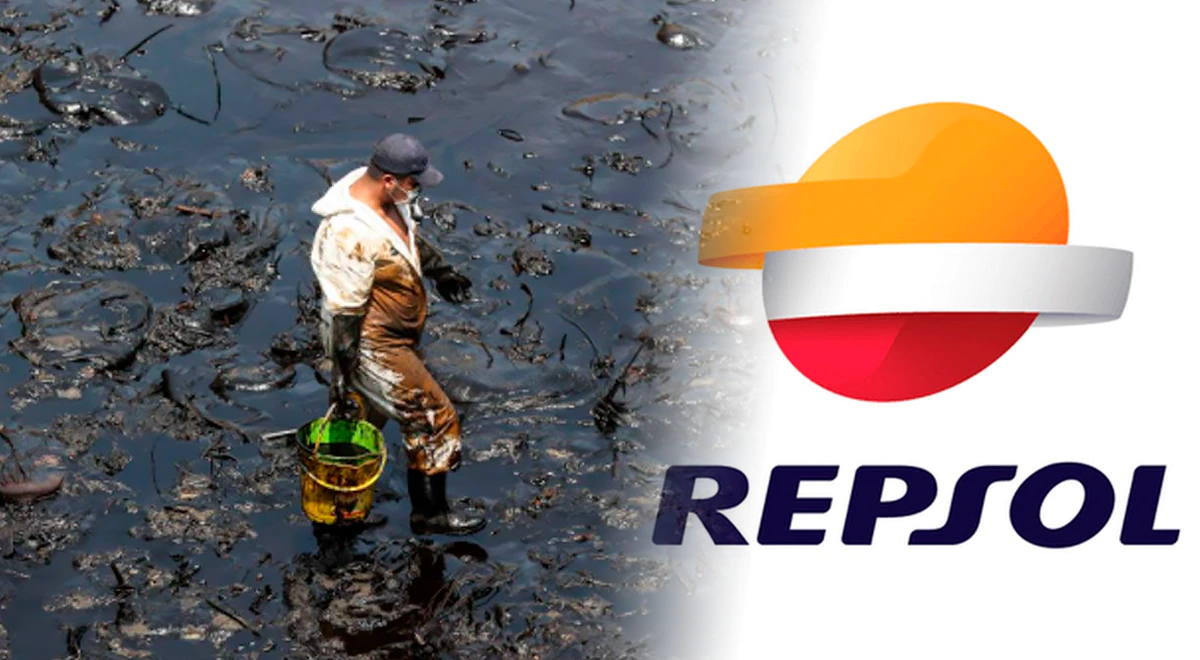
Worker wearing protective suit in an area flooded with oil. Photo: Andina-Repsol.

Orinoco Tribune – News and opinion pieces about Venezuela and beyond
From Venezuela and made by Venezuelan Chavistas

Worker wearing protective suit in an area flooded with oil. Photo: Andina-Repsol.
Repsol’s La Pampilla refinery has been exonerated from a $4.5 billion fine; Peru’s courts cited a conflict of interest.
Nearly 12,000 barrels of oil spilled into the sea off the Peruvian coast a year ago, wreaking havoc on the ecosystems of two protected natural areas and 48 beaches in the districts of Ventanilla, Santa Rosa, Ancón, Aucallama, Chancay, and Huacho.
The disaster, which occurred on January 15, 2022, during the unloading of crude oil from a ship at Terminal Multiboyas No. 2 of Repsol’s La Pampilla refinery, caused the death of thousands of fish, mammals, and birds, according to a report by the organization Oceana Peru.
The Ombudsman’s Office points out that the catastrophe affected more than 10,000 families, including around 2,500 fishermen as well as tour operators and people who carried out commercial activities dependent on the sea.
“Everything changed abruptly when that hydrocarbon tide appeared that little by little killed the birds and fish that had the coastal marine zone as their habitat, from the beach to the west, at a distance of 5 nautical miles,” said Luis Garrido Chávez, president of the Association of Artisanal Fishers of Ancón (APESCAA), quoted by the Andina news agency.
Delayed response
Oceana complained that there was no timely response to the disaster, as it took three days for any response, and these were carried out by personnel without proper training and adequate protection.
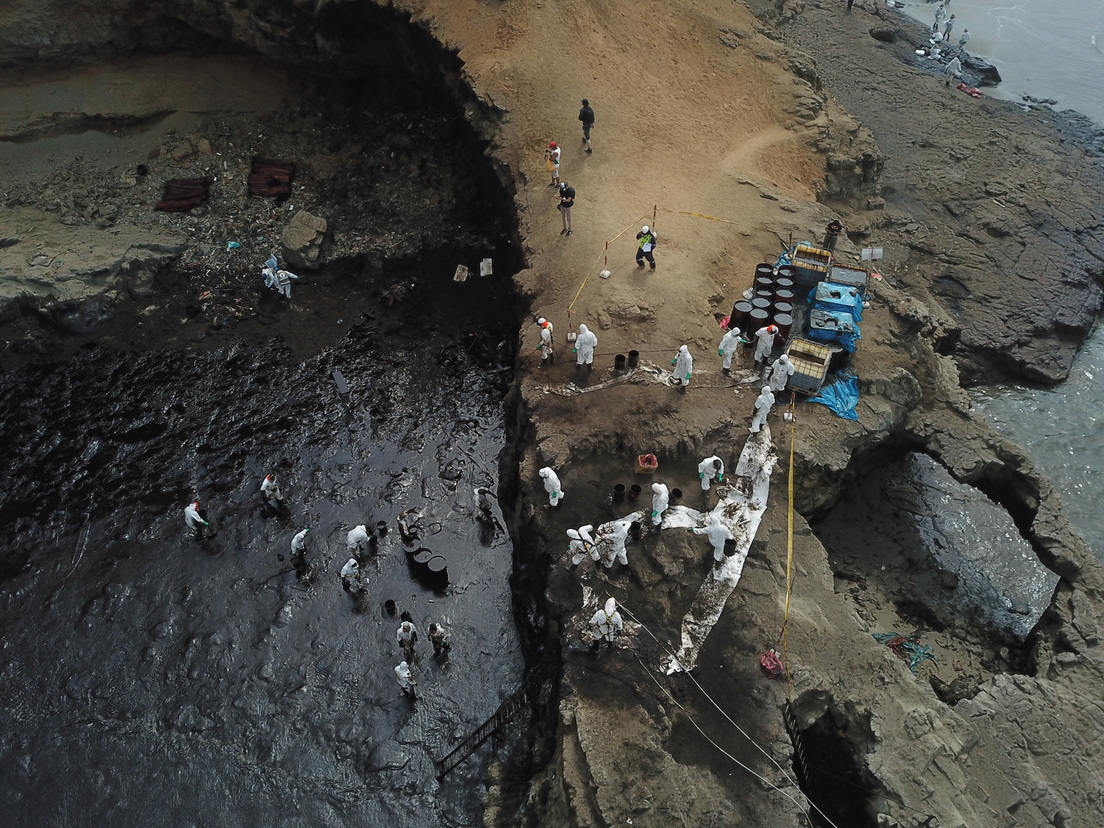
Therefore, the crude oil spread more than 100 kilometers north of the La Pampilla refinery. “If we had a good valve and an adequate monitoring system, the spill probably would not have gone beyond Ancón (25 kilometers) and it would have been easier to contain it,” said Juan Carlos Riveros, Oceana’s scientific director.
The affected area was initially reported to be 2.5 square meters. However, it was later explained that the spill covered up to 11,000 hectares.
Current situation
The declaration of an environmental emergency for this disaster expired last October, explains the Ombudsperson’s Office. Until then, says the institution, there was no medium- or long-term management plan that would allow the cleanup work to continue in a planned and comprehensive manner.
In that month, the Agency for Environmental Evaluation and Control (OEFA) indicated that 71 of the 97 sites impacted by the spill continued to be affected by petroleum.
On January 5, Repsol published an announcement claiming that the conditions were set for the reactivation of fishing and the reopening of beaches affected by the spill.
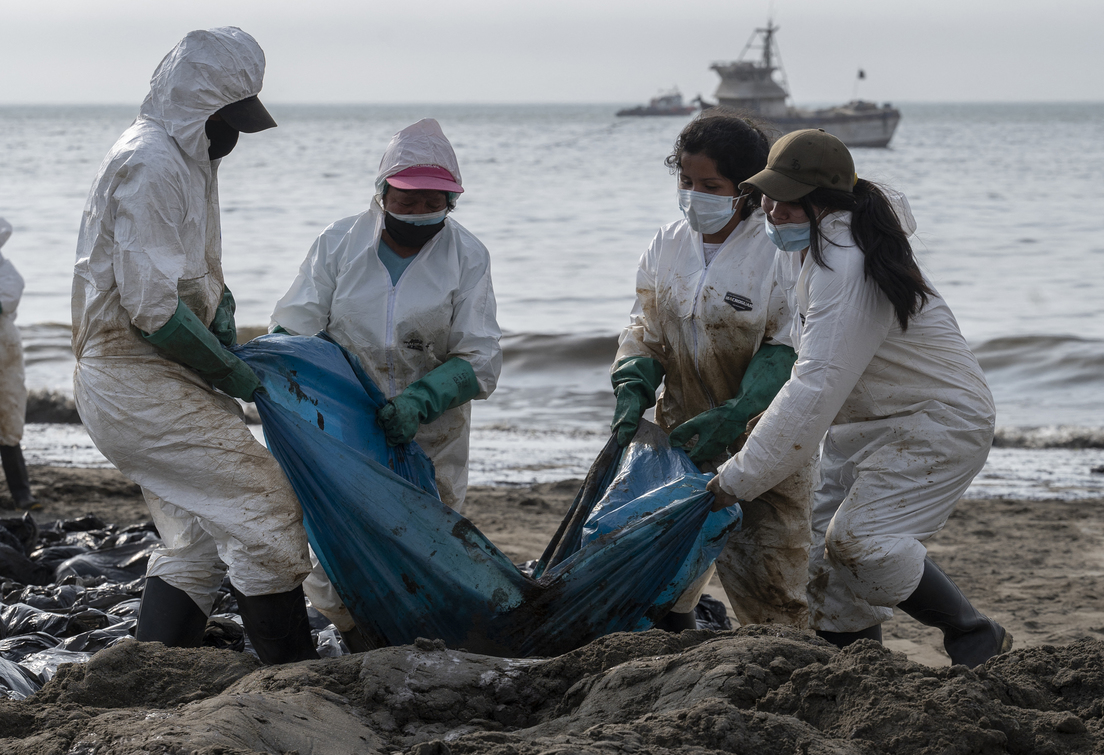
“New sampling of beaches, water, sediment and marine life show that 100% of the places analyzed comply with international standards and national regulations,” the company wrote on social media.
According to the oil corporation, the sampling work was carried out between October and November by Environmental Resources Management, “one of the most prestigious international companies in environmental management.”
However, the head of the General Directorate of Environmental Health and Food Safety (DIGESA) of the Ministry of Health, José Ramos, dismissed the claims of the oil company.
“Repsol is not a health authority,” Ramos said. “The hydrocarbon settles in the sand, and when people enter the sea they walk in it, but it also contaminates the air and, therefore, can affect families who are comfortably receiving the sun’s rays. The damage will not be seen immediately.”
12 months after the disaster, pollution continues to affect fishers. In the district of Ancón alone, almost 70% of the finishing boats remain out of work.
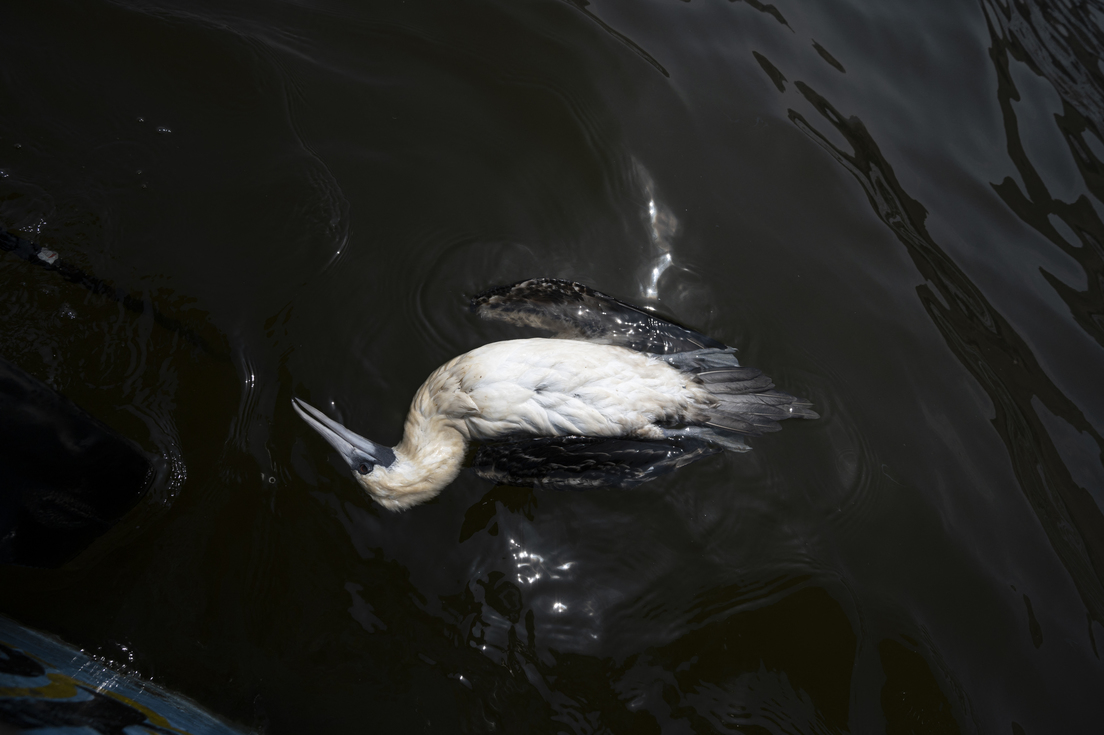
“It is frustrating to have an immense sea behind you and not be able to enter to catch a fish, because you would be threatening public health… It is as if part of our life had died,” lamented a fisherman recently interviewed by Oceana.
This situation has also affected the mental health of those in the fishing industry, as the uncertainty due to the lack of work, and therefore the lack of income, is compounded by the little interest of the authorities in resolving the problem.
Of the 48 affected beaches, 25 are for recreational use. However, a DIGESA sanitary evaluations to measure compliance with international hydrocarbon standards for this type of beach is still pending.
Call to action
Faced with this situation, the Ombudsperson’s Office asked the state for “articulated and continuous action, which also incorporates measures in the medium and long term, by the competent entities to address environmental and social impacts,” without prejudice to the obligations of the La Pampilla refinery.
“Permanent monitoring and studies are required in the affected areas, which will allow immediate measures to be taken to protect the environment and health—even more so when we are in the summer season and we are witnessing abnormal waves,” said Lissette Vásquez, Deputy for the Environment, Public Services and Indigenous Peoples of the Ombudsperson’s Office.
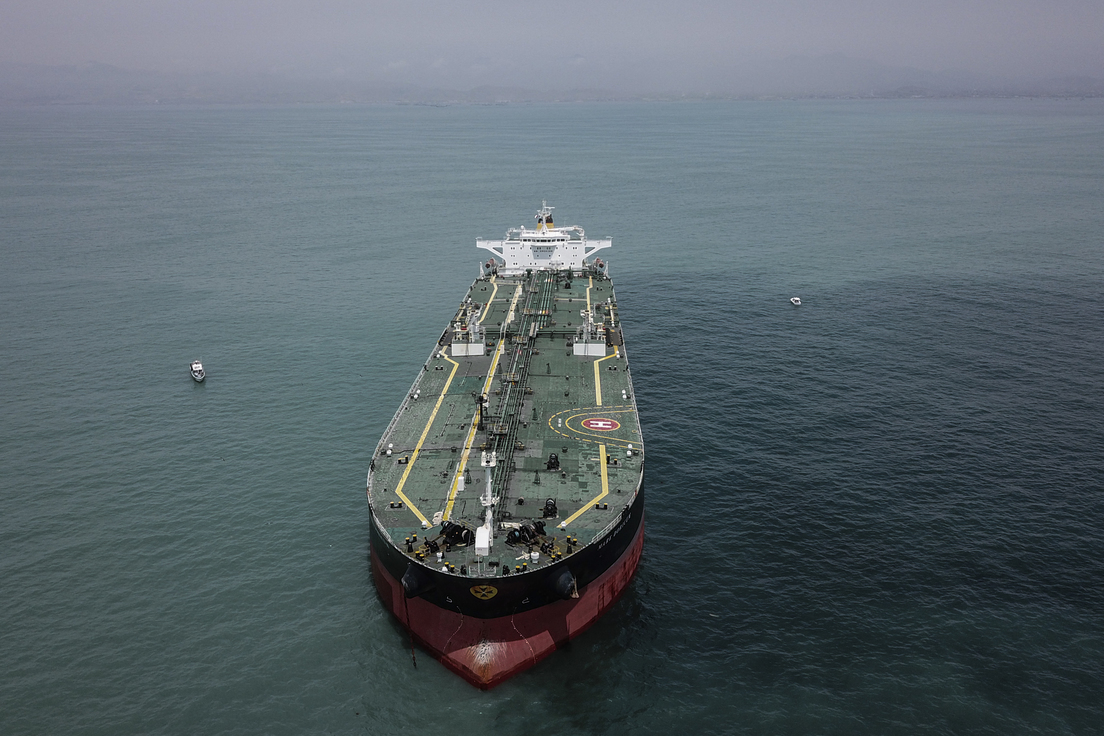
Another of the pending issues, says the ombudsperson’s office, is fair compensation to more than 10,000 people engaged in businesses related to maritime activity, directly and indirectly affected by the spill.
The sanctions against Repsol
In the midst of these pending challenges after the spill, it was learned that Repsol’s La Pampilla refinery has been released from a million-dollar fine; courts cited a conflict of interest.
Seven Administrative Sanctioning Procedures were initiated against Repsol for violations of environmental regulations related to this ecological disaster. Currently, one is being processed and six resulted in fines totaling more than 70 million soles (just over $18.3 million), reports La República, which had access to documents on the case.
Of these six fines, three are being challenged before the OEFA’s Environmental Control Court (TFA) and the other three are within the deadline to file a challenge, which expires on January 31.
This occurs while a conflict of interest was revealed in the case, since the technical secretary of the TFA, Angélica María García Gilio, is the wife of Adolfo Eugenio Huapaya Venegas, an industrial hygiene and safety engineer at the La Pampilla refinery.
Just last Saturday, January 14, the OEFA announced, through a statement , that García was being released from the position she had held since March 2021. “This decision has been executed immediately, upon learning that she has a marital relationship with an official of the company Repsol,” wrote the OEFA. “In this sense, the necessary investigations have been initiated, in accordance with current legal regulations, safeguarding the interests of the State and respecting due process.”
“When things like this happen so obscurely, one may think that if there is no complicity, at least there is a very weak hand to sanction Repsol’s conduct to date,” Oceana’s Riveros commented in this regard, without mentioning the judicial corruption that might also be behind the process.
In addition to the sanctioning procedures, in August of last year, the 27th Specialized Civil Court of Lima admitted for processing the lawsuit against Repsol, for damage compensation, filed by the National Institute for the Defense of Competition and Protection of Intellectual Property.
The compensation requested amounts to $4.5 billion and, in addition to Repsol, the lawsuit names other companies such as Mapfre Global Risks, Fratelli D’Amico Armatori SPA, Mapfre Perú Compañía de Seguros y Reaseguros SA, Refinería La Pampilla SAA, and Transtotal Agencia Marítima SA.
(RT)
Translation: Orinoco Tribune
OT/JRE/SL